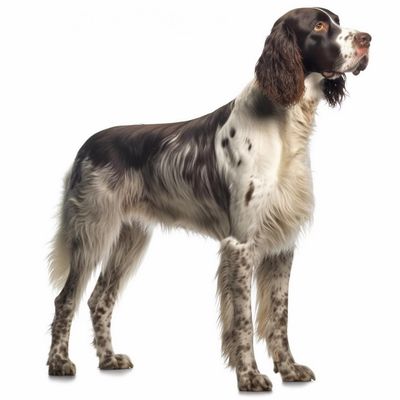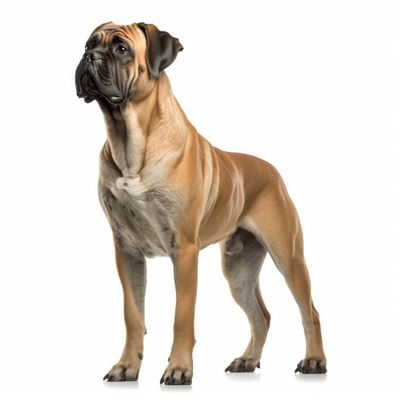Cavalier King Charles Spaniel - vs - English Springer Spaniel - vs - Bullmastiff

Cavaliers have a moderate energy level and enjoy a mix of playtime and relaxation.
Cavaliers need daily exercise, such as walks or playtime, to stay happy and healthy.
Cavaliers are eager to please and can be trained easily with positive reinforcement.
Cavaliers are intelligent dogs that enjoy learning new commands and tricks.
Cavaliers adapt well to various living situations, from apartments to country homes.
Cavaliers are gentle, affectionate, and patient, making them excellent companions for children.
Cavaliers get along well with other pets, including dogs and cats, when socialized properly.
Cavaliers can tolerate mild cold but need extra care in extreme cold due to their silky coats.
Cavaliers can handle warm climates, but make sure to provide shade, water, and avoid excessive exercise.
Cavaliers have a silky coat that sheds moderately, so regular brushing can help minimize shedding.
Cavaliers require regular brushing and occasional bathing to keep their coats healthy and tangle-free.
Cavalier King Charles Spaniels bark occasionally, usually only when necessary or provoked.
Cavalier King Charles Spaniels may have some health issues, requiring regular veterinary checkups and preventative care.

English Springer Spaniels are medium-sized dogs, weighing 40-50 lbs, with a height of 19-20 inches.
English Springer Spaniels have a high energy level and require regular exercise to stay happy and healthy.
English Springer Spaniels need a moderate amount of exercise, including daily walks, runs, and interactive play sessions.
English Springer Spaniels are intelligent and eager to please, making them easy to train with positive reinforcement.
English Springer Spaniels are highly intelligent dogs and excel in various dog sports and activities.
English Springer Spaniels can adapt to various living situations but thrive in active households that can provide ample exercise.
English Springer Spaniels are generally good with children when properly socialized and can be energetic playmates.
English Springer Spaniels can get along well with other pets, especially when raised together.
English Springer Spaniels have a double coat and can tolerate cold climates, but they still need proper protection during extreme cold.
English Springer Spaniels can tolerate hot climates, but they need to be monitored for signs of overheating during exercise.
English Springer Spaniels have a double coat and shed moderately, requiring regular brushing to minimize loose hair.
English Springer Spaniels require regular grooming, including brushing, bathing, and trimming to keep their coats clean and healthy.
English Springer Spaniels have average bark tendencies and may bark for various reasons, such as alerting their owners or during playtime.
English Springer Spaniels are generally healthy, but regular veterinary checkups and preventative care are still necessary.

Bullmastiffs are large dogs, weighing 100-130 lbs, with a height of 24-27 inches.
Bullmastiffs have a low energy level, making them suitable for a more laid-back lifestyle.
Bullmastiffs need regular exercise, such as daily walks and some playtime to keep them healthy.
Bullmastiffs can be trained but may require patience and consistency due to their stubborn nature.
Bullmastiffs are moderately intelligent and can learn basic commands and tricks.
Bullmastiffs can adapt to various living situations but may be better suited to larger homes with outdoor space.
Bullmastiffs are generally good with children, known for their gentle and patient nature.
Bullmastiffs generally get along well with other pets, especially when properly socialized.
Bullmastiffs can tolerate cold climates but should be protected from extreme cold.
Bullmastiffs can tolerate hot climates but need extra care to stay cool and avoid overheating.
Bullmastiffs have a short coat and shed moderately, requiring regular brushing to manage shedding.
Bullmastiffs require minimal grooming, including occasional brushing and bathing to keep their coats clean and healthy.
Bullmastiffs bark occasionally, usually only when necessary or provoked.
Bullmastiffs may have some health issues, requiring regular veterinary checkups and preventative care.



